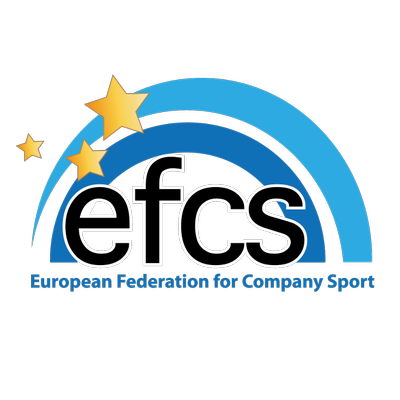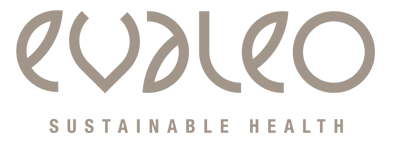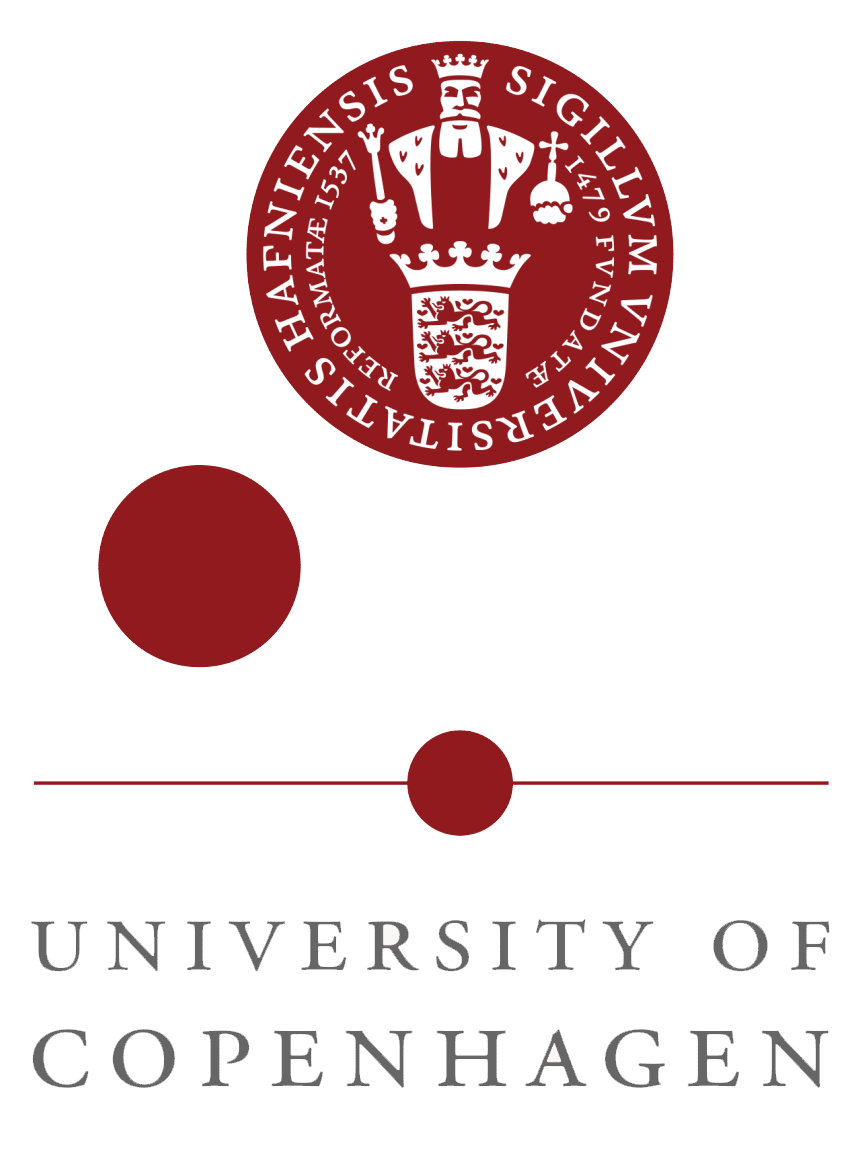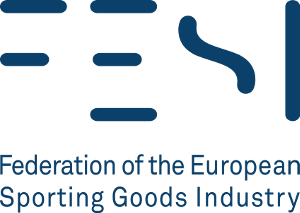Workplace Active Certification
Meet the team behind the project

Project management
About the coordinator

The European Federation for Company Sport (EFCS) is a voluntary non-profit organisation gathering national company sport federations from 39 different countries (and 41 federation) of which 22 EU member states. These national federations are referent associations in their own countries which main objective is to promote and develop on the development of sport for all within a community of work.
The consortium

Evaleo is a Swiss association founded in 2011 and based in Echallens, near Lausanne, whose mission is to inspire and enable people make healthy choices and adopt an active, healthy lifestyle as a path to a fulfiling life.
Development and education oriented, they actively promote sustainable health and well-being for everyone. Their sustainable health approach focuses on each individual while addressing the need for personal, social and sustainable development.

Artevelde Hogeschool, member of the Ghent University Association, is one of Flanders’ largest university colleges (over 13,000 students). It offers study programs in teacher training, business management, communications, graphic education, health care and social work.
Artevelde University College Ghent is a knowledge center for education, research and development, where students, staff and strategic partners cooperate and develop their talents in a stimulating and internationally oriented environment. As an institute based on a culture of internationalization, Artevelde University College Ghent is an active partner in diverse international networks, attends various international conferences and collaborates intensively with international partners for educational and research purposes.

The Chamber of Korinthia is a legal entity governed by public law and operates in accordance with the provisions of Laws No. 2081/92 and No. 3419/2005 (Greek Official Gazette / 297 / 06.12.05). The governing bodies of the Chamber are 21 elected members as well as the Administrative Committee, counting 7 members and consists of the President, Vice-Presidents A and B, Supervisor and Secretary General.
It is an advisory body of the state and its members and aims to promote development activity in its region as well as the development of industry, craft, trade and services in the interests of the national economy.

The University of Copenhagen is one of the largest in Scandinavia, funded in 1479 and ranked among the best 50 universities in the world with over 40,000 students (of which 9,500 study at the Faculty of Science) and more than 9,000 employees. Internationally recognized for its research and teaching, the Department of Nutrition, Exercise and Sport (NEXS), is responsible for two BA and five MSc programs.
The Department of Nutrition, Exercise and Sport is located in the Faculty of Science. The Department of Nutrition, Exercise and Sports (NEXS) engages in research, education, innovation and knowledge dissemination within the areas of nutrition, human physiology and sports at the highest international level, covering disciplines related to the health sciences, humanities and social sciences.

Federation of the European Sporting Goods Industry (FESI) is the European representative of the sporting goods industry vis-à-vis the European Institutions as well as other European authorities and bodies. More specifically it:
- Provides a unique opportunity for sporting goods companies to collaborate on non-commercial pre-competitive issues of common interest.
- Monitors all legislative initiatives relating to the sporting goods industry at a European level.
- Offers an established and recognized platform for the voice of the sporting goods industry to be heard in Brussels.
- Communicates with a variety of European stakeholders across a wide range of issues from trade and environment to product safety and many more.

The European Federation for Company Sport (EFCS) is a voluntary non-profit organisation that brings together more than 2,000 structures which work on the development of sport for all within a community of work. FFSE promotes physical activity and grassroots sport practice as a user-friendly way to improve health and well-being, as well as to strengthen social links and productivity within a company.
The FFSE is recognized by the Ministry of Sports, is affiliated to the French National Olympic and Sports Committee, is a member of the European Federation for Company Sport (EFCS) and of the World Federation for Company Sport (WFCS).

Parliamentary Secretariat for Sport, Youth and Voluntary Organisations takes care of the promotion of sports and games and is also politically responsible for youth welfare and the Voluntary Organisation Sector. It also monitors the functioning of entities which fall under the remit of the Parliamentary Secretariat such as SportMalta, Aġenzija Żgħażgħ, the Malta Council for the Voluntary Sector and the Office of the Voluntary Organisations Commissioner.
The MP is part of the Ministry for Education and Employment of Malta. The objective of the Ministry for Education and Employment is to provide present and future generations with the necessary skills and talents for citizenship and employability, in the 21st century and beyond.

Olympic Committee of Slovenia – Association of Sports Federations, as an umbrella non-governmental Slovenian sports organisation, endeavours, along with its affiliated National Sports Federations and Municipal Sports Federations, Sports Clubs and Sports Associations, members of these Federations, to ensure optimal conditions for the operation and development of Slovenian sport in all its various forms.
The OCS-ASFs mission is to plan, organise and control the execution of the programs of its three pillars: Sport for All, Commune-Level Sport and Top Sports. The OCS-ASFs large scope of activities comprises numerous programs assisting in creating the best possible conditions for the work and the development of education and training, sports infrastructure, and high-quality organisational structure of sports organisations, while working for the protection and development of voluntary work in sports clubs.

Sport and Citizenship is the leading European think tank in the field of sport. Created in 2007 after the publication of the White Paper on Sport, it aims to support the development of the European dimension of sport. Sport and Citizenship is dedicated to the study of European public policies in the field of sport, and the promotion of sport’s societal impact. Ultimately, Sport and Citizenship promotes sport and physical activity as elements of a European identity.
Therefore Sport and Citizenship has been committed since its very beginning to the launch of a European civic dialogue in the field of sport thanks to multidisciplinary and transverse reflections aiming at putting European sport stakeholders in relation with each other: governments, sport movement, as well as civil society, academics and the private sector.
Associated partner

The International Labour Organization (ILO) is a United Nations agency whose mandate is to advance social justice and promote decent work by setting international labour standards. It was the first specialised agency of the UN. The ILO has 187 member states. The tripartite structure is unique to the ILO where representatives from the government, employers and employees openly debate and create labour standards.
The International Labour Organization has developed a system of international labour standards aimed at promoting opportunities for women and men to obtain decent and productive work, in conditions of freedom, equity, security and dignity.
The choice of partners was made in order to have an appropriate mix of complementary participating organisations with the necessary profile, experience and expertise to successfully deliver all aspects of the project. We think partners chosen are most suitable for the consortium for following reasons:
- It is a combination of European, national and regional/local organisations.
- All partners represent different political, cultural and economic environments from all over Europe, from Scandinavia, Western, Central and South Europe, so that we get a broad view of the situation in EU.
- All partners are familiar with pan European events and projects and most of them were involved in EU-Erasmus + projects.
- They represent different areas and networks that are complementary: Olympic committees, think tank, certification association, sport federation, education organisation, sport industry, ministries, chamber of commerce. They are not used to work together but they are clearly related at one time to the sport, company, research or political area that are in the heart of the WAC project.
